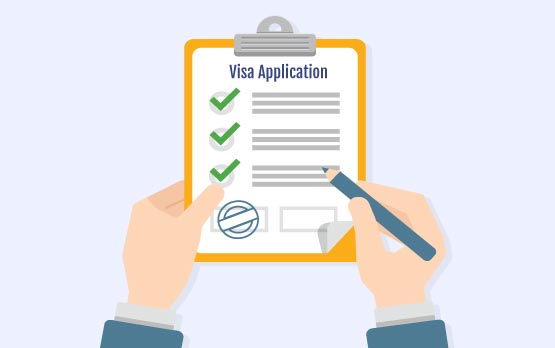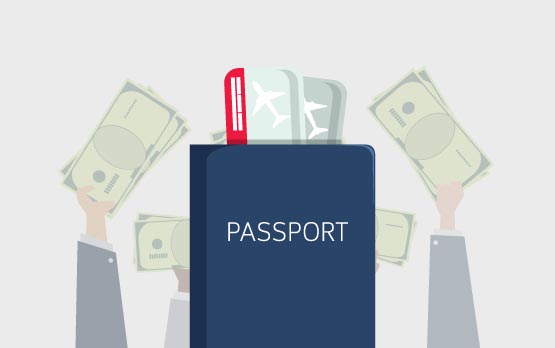What is ETIAS?
ETIAS stands for the European Travel Information and Authorization System. It was announced by the European Commission in November 2016 and was implemented into legislation in September 2018. The intention of forming the system was to improve the security of EU member states within the Schengen region by capturing data on travelers that currently visit the area without a visa.
How to apply
for ETIAS?
The ETIAS will only pre-screen travelers not needing a Schengen Visa. The screening would pertain to terrorism or migration related risks. The objective is to identify individuals who pose security threats before they are able to travel to the Schengen area.
Who Needs
ETIAS?
ETIAS is not a visa; it is a visa waiver, similar to the U.S. ESTA and Canadian eTA. Travelers currently visiting European Member countries visa-free will require an ETIAS from 2022 onwards. Passport holders of the EU single market are exempt from ETIAS.

ETIAS Europe
Convenience – Reduce border wait-times for travelers and streamline entry into EU member states.
Border efficiency - Improve border management for security personnel screening travelers upon arrival and departure from EU member states. Transparency - Help the EU toward achieving its goal of a visa liberalization policy that would enable citizens of more countries to enter the EU without the need of a Schengen Visa.

ETIAS USA
Immigration - Enable border authorities to spot migration irregularities and abuse of visa-free EU travel.
Security – Help EU member states strengthen their border security processes and procedures against crime and terrorism. Funding – Provide an additional source of revenue for the EU budget as well as for managing visa-free travel of business, tourism and transit visitors.

ETIAS Visa Application
ETIAS is only relevant to travelers who travel visa-free to EU member states. The application process is aimed at taking approximately 10 minutes or less. The website processing ETIAS applications will support mobile, desktop and mobile devices. The types of information requested include: Biometric and personal data such as name, date of birth and gender Applicant contact details such as home address email address

ETIAS Visa Requirements
Education history, such as primary, secondary, vocational schooling, university, or no education. Travel document information, such as a passport or other document, including data such as the document number, issue date, expiry date, and country. Current occupation or job, including title as well as contact details. First EU member state of arrival

ETIAS Visa Fees
The ETIAS fee charged on applications for travellers between the ages of 18 and 70 is 7€. There is no ETIAS fee for travellers under the age of 18, or over the age of 70. Every traveller, regardless of their age, will require an approved ETIAS prior to their arrival to the Schengen area. An ETIAS application is automatically processed based on the following three factors: Identity – Does the applicant's identity match their passport? Identity – Does the applicant’s identity match their passport? Travel document – Do the travel document details match the information provided by the applicant in other sections ? Background questions – Do the answers match the data held in the databases checked by the ETIAS Central Unit? The applicant identify, travel document and background questions are three criteria.
Differences between ETIAS
and Schengen Visas
There are significant differences between ETIAS and a traditional visa. If you are traveling for 90 days or less within a 180-day period, an ETIAS visa waiver is an easier, faster and overall simpler option.
Here’s a quick overview of the differences between the two:
The Overall Process
ETIAS: Simple, requiring an application and a valid passport
Visa: Complicated and time consuming, requiring multiple documents and an in-person interview
How You Apply
ETIAS: 100% online
Visa: A combination of online visa application download and in-person interview at embassy / consulate of the first country on your itinerary
What You Need to Apply
ETIAS: Valid passport and completed ETIAS application
Visa: Valid passport, completed visa application and multiple additional documents depending on the type of visa applied for, including a cover letter explaining the purpose of your trip, itinerary, travel insurance, proof of accommodation, proof of paid visa fees and temporary travel medical insurance.
Embassy/Consulate Requirements
ETIAS: None
Visa: Must interview at embassy / consulate of first country on itinerary
Approval Time
ETIAS: Approval often takes minutes, but can take a maximum of four days
Visa: Approval can take up to 2 weeks
Travel Purposes Covered
ETIAS: Tourism, short-term business such as a conference and qualifying medical procedures – for a maximum of 90 days within a 180-day period
VISA: If you’re going to be working long term for a company in the Schengen Area or studying abroad, you’ll need to apply for a visa
How Long You Can Stay
ETIAS: Up to 90 days within a 180-day period
Visa: Length of stay depends upon the type of visa and embassy / consulate approval
ETIAS key Facts
An application will be manually processed if the traveller's data matches a hit in one of the EU databases. The applicant may contact by the ETIAS Central Unit or ETIAS National Teams to provide additional documentation to process the application. Furthermore, the applicant may also be given the option to attend an interview at a nearby EU member state consulate if the documentation alone is not sufficient to process the applications.
Applicants who are denied an ETIAS will receive reasons of their refusal. This will include information on the particular EU member state that decided on the application. Applicants who have been denied an ETIAS have the right to appeal. Appeals will need to be submitted to the EU member state that refused the ETIAS. The processing of appeals will also take place in this same EU Travelers arriving to the Schengen area by air, land or sea will be required to present a valid travel authorization. Using an Entry-Exit System (EES) check, EU border authorities will check a traveler's passport, visa or ETIAS to determine admissibility. Travelers without a passport from an EU member state, a valid ETIAS or a valid Schengen visa will not be allowed entry. An approved ETIAS does not guarantee entry into an EU member state. Admissibility is determined by EU border officials. Furthermore, an approved ETIAS can be revoked if the traveler was deemed to have obtained using fraud or deception. ETIAS applications will also be revoked as new alerts are received in the EU's security databases due to a traveler being refused entry, or reports of lost or stolen travel documents. Each member state, through its relevant ETIAS National Unit, is responsible for revoking approved ETIAS authorizations if an alert matches a traveler's authorization. Similarly, an ETIAS can be annulled if an ETIAS applicant's circumstances change in regards to their eligibility, such as a recent criminal conviction, terrorist activity, or travel to conflict areas. An ETIAS will also be annulled in the case of passport expiry, or name change of a traveler. The ETIAS Central Unit is under the management of the European Border and Coast Guard Agency. Maintains records of current application data as well as ensures its accuracy. Also validates applications where there is a against one of the databases used to screen travelers. Responsible for defining, evaluating, testing and reviewing ETIAS screening rules and their risks, alongside the ETIAS Screening Board. Responsible for conducting audits of ETIAS application management and adherence to ETIAS screening rules with considerations of applicant privacy and data protection.
ETIAS Visa ELIGIBILITY
Each EU member state is a part of the ETIAS National Units. The ETIAS National Units will assess and decide on applications where the ETIAS Central Unit is unable to automatically process an ETIAS application. The ETIAS National Units will need to provide reasons for authorizing or denying applications. Also, the ETIAS National Units can provide opinions and share information amongst member states via their national unit.
Apply for ETIAS Authorization
Each EU member state is a part of the ETIAS National Units. The ETIAS National Units will assess and decide on applications where the ETIAS Central Unit is unable to automatically process an ETIAS application. The ETIAS National Units will need to provide reasons for authorizing or denying applications. Also, the ETIAS National Units can provide opinions and share information amongst member states via their national unit.
ETIAS status
Each EU member state is a part of the ETIAS National Units. The ETIAS National Units will assess and decide on applications where the ETIAS Central Unit is unable to automatically process an ETIAS application. The ETIAS National Units will need to provide reasons for authorizing or denying applications. Also, the ETIAS National Units can provide opinions and share information amongst member states via their national unit.
ETIAS and Brexit
Each EU member state is a part of the ETIAS National Units. The ETIAS National Units will assess and decide on applications where the ETIAS Central Unit is unable to automatically process an ETIAS application. The ETIAS National Units will need to provide reasons for authorizing or denying applications. Also, the ETIAS National Units can provide opinions and share information amongst member states via their national unit.
